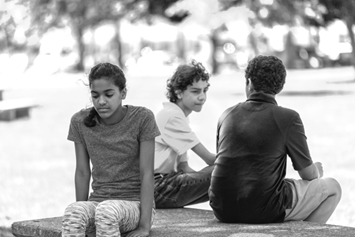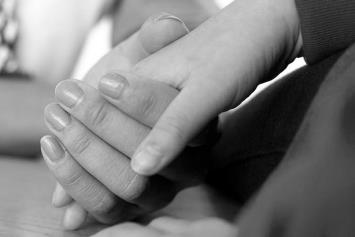Psychosis
Children with psychosis may experience significant symptoms that impact their behavior, thoughts and emotions.
What Is Psychosis?
Psychosis refers to a collection of significant symptoms:
- Hearing, seeing, smelling, or feeling things that aren’t real
- Having very odd or unusual thoughts
- Experiencing disorganized thinking and/or behavior
Psychotic symptoms may be a marker of severity (for example, in someone with depression or bipolar disorder) or may be part of a schizophrenia spectrum disorder.
What Symptoms Should You Look For?
- Delusions. These are false beliefs that are not based in reality.
- Hallucinations. These usually involve seeing or hearing things that don't exist. Hearing voices is the most common hallucination.
- Disorganized thinking. Effective communication is impaired, and answers to questions may be partially or completely unrelated.
- Extremely disorganized or abnormal motor behavior. This behavior can include resistance to instructions, inappropriate or bizarre posture, a complete lack of response, or useless and excessive movement.
- Negative symptoms. This refers to a reduced ability or lack of ability to function normally. For example, the person may neglect personal hygiene or appear to lack emotion. Also, the person may have reduced ability to engage in activities, such as a loss of interest in everyday activities, social withdrawal or the lack of ability to experience pleasure.
What Causes Psychosis in Children?
Specific causes for most psychotic disorders are not known. However, the combination of inherited, biological, environmental and psychological factors is thought to be involved.
How Is Psychosis in Children Diagnosed?
The first step in addressing psychosis is a proper and complete diagnosis by a mental health professional with experience in assessing psychotic illness.
Diagnosing psychosis involves ruling out other mental health disorders. A thorough diagnosis will also determine that symptoms aren't due to substance use, medication or a medical condition.
The process of diagnosis may involve:
- A physical exam
- Diagnostic investigations
- A comprehensive behavioral health evaluation
Diagnosing psychosis in adolescents is a matter of systematic interviewing, as well as ruling out other behavioral health and medical diseases.
Diagnosing psychosis in preschoolers and pre-adolescents poses developmental and language challenges. A useful technique when interviewing children under age ten is to include the parent as an active participant in the inquiry process. The parent can help to “translate” the child’s responses, if necessary.
How Is Psychosis in Children Treated?
A combination of medication and individual therapy, family therapy, and specialized programs (wraparound services, early psychosis treatment) is often necessary.
When Should You Seek Help for Children With Psychosis?
Understanding the context of psychotic symptoms is essential. Identifying and starting treatment as early as possible may significantly improve your child's long-term outcome.


